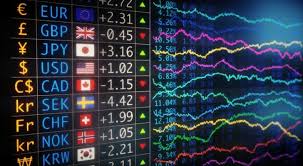
Mastering Forex Currency Market Trading: Strategies and Insights
The Forex market is a dynamic and fluid environment where currencies are bought and sold. This market operates 24 hours a day, five days a week, allowing traders from all corners of the globe to participate. Understanding the intricacies of Forex trading can seem intimidating at first, but with the right knowledge and resources, such as forex currency market trading MT5 Forex Brokers, anyone can become a successful Forex trader. In this article, we’ll explore key concepts, strategies, and tips for navigating the Forex currency market.
Understanding the Basics of Forex Trading
Forex trading involves the exchange of one currency for another at an agreed price. This market is considered the largest and most liquid financial market in the world, with trillions of dollars traded daily. Currency pairs, such as EUR/USD or GBP/JPY, represent the value of one currency in relation to another. The first currency is referred to as the ‘base currency,’ and the second as the ‘quote currency.’ Understanding how these pairs work is crucial for any trader.
How Currency Pairs Work
In a currency pair, the base currency is what you buy or sell. If you believe that the euro will strengthen against the US dollar, you would buy the EUR/USD pair. Conversely, if you believe that the euro will weaken, you would sell the pair. The price of a currency pair fluctuates based on various factors, including economic indicators, geopolitical events, and market sentiment.
The Role of Leverage in Forex Trading
Leverage is a powerful tool that allows traders to control larger positions with a smaller amount of capital. For example, if a broker offers a leverage of 100:1, this means that for every $1 in your account, you can control $100 in the market. While leverage can amplify profits, it also increases the risk of losses, making it crucial for traders to use risk management strategies effectively.
Managing Risk in Forex Trading
Risk management is an essential aspect of Forex trading. Traders should only risk a small percentage of their capital on a single trade, typically around 1-2%. Stop-loss orders are a commonly used tool to limit potential losses. By setting a stop-loss order, a trader can automatically close a losing position once it reaches a predetermined price point. Additionally, diversifying trades across different currency pairs can help mitigate risk.
Technical Analysis in Forex Trading
Technical analysis involves studying price charts and using indicators to predict future price movements. Traders utilize various tools, including moving averages, relative strength index (RSI), and Fibonacci retracements, to identify trends and potential entry and exit points. Mastering technical analysis can significantly enhance a trader’s ability to make informed decisions in the fast-paced Forex market.
Key Indicators Used in Forex Trading
Numerous indicators can assist traders in analyzing market trends. Moving averages smooth out price data to help identify the direction of the trend. RSI measures the speed and change of price movements to identify overbought or oversold conditions. Fibonacci retracement levels can provide insight into potential support and resistance levels in the market.

Fundamental Analysis in Forex Trading
While technical analysis focuses on price movements, fundamental analysis examines economic indicators, news, and events that may impact currency values. Key economic reports, such as GDP data, employment figures, and inflation rates, can significantly influence currency trends. Traders must stay informed about global economic news to anticipate market reactions and potential currency fluctuations.
The Importance of Economic News Releases
Economic news releases are scheduled throughout the month and can create volatility in the Forex market. Events such as interest rate announcements, central bank meetings, and geopolitical developments can lead to sharp price movements. Traders often adjust their strategies around these events, choosing to enter or exit trades based on the anticipated impact of the news.
Developing a Trading Plan
A well-defined trading plan is vital for success in the Forex market. A trading plan should outline your trading objectives, risk tolerance, trading strategies, and methods for evaluating your performance. By adhering to a trading plan, traders can minimize emotional decision-making and stay focused on their long-term goals.
Evaluating Trading Performance
Regularly reviewing your trades and overall performance is essential for continuous improvement. Keep a trading journal that records your trades, the reasoning behind each one, and the outcomes. Analyzing past trades can help identify patterns, strengths, and areas that require improvement.
Choosing the Right Forex Broker
Selecting a reputable Forex broker is crucial for a smooth trading experience. Factors to consider when choosing a broker include regulation, trading platform, fees, and customer service. Brokers that offer the MetaTrader 5 (MT5) platform are popular among traders due to its user-friendly interface and robust features that cater to both beginners and experienced traders.
Benefits of Using MT5 Forex Brokers
MT5 Forex brokers provide access to advanced trading tools, including multiple timeframes, built-in indicators, and customized algorithmic trading capabilities. The platform allows for complex orders and superior analytics, giving traders the flexibility they need in their trading strategies. Using an MT5 broker can enhance your trading capabilities and overall performance.
Conclusion
The Forex currency market presents vast opportunities for traders willing to invest the time and effort to learn its intricacies. By understanding the basics, employing effective risk management strategies, mastering technical and fundamental analysis, and choosing the right broker, traders can significantly improve their chances of success. Continuous education, self-reflection, and adherence to a well-structured trading plan will help you navigate the complexities of the Forex market with confidence. Remember, like any skill, successful Forex trading requires dedication and practice.

